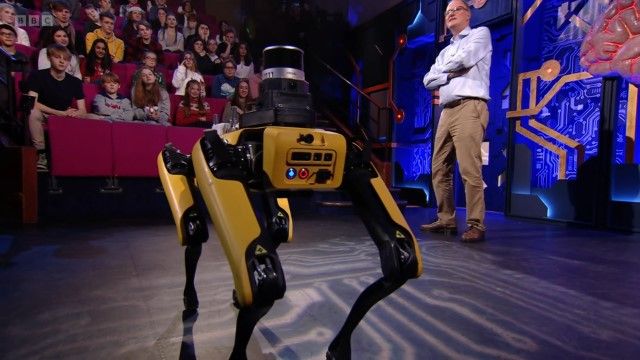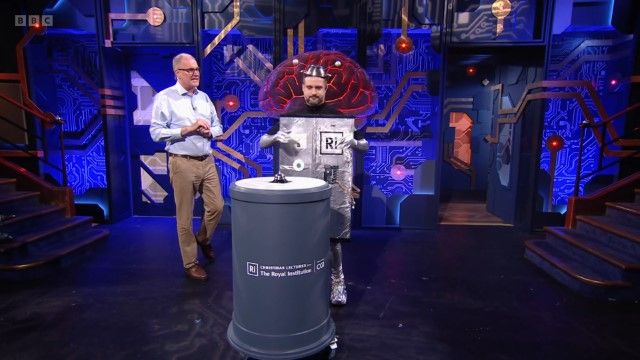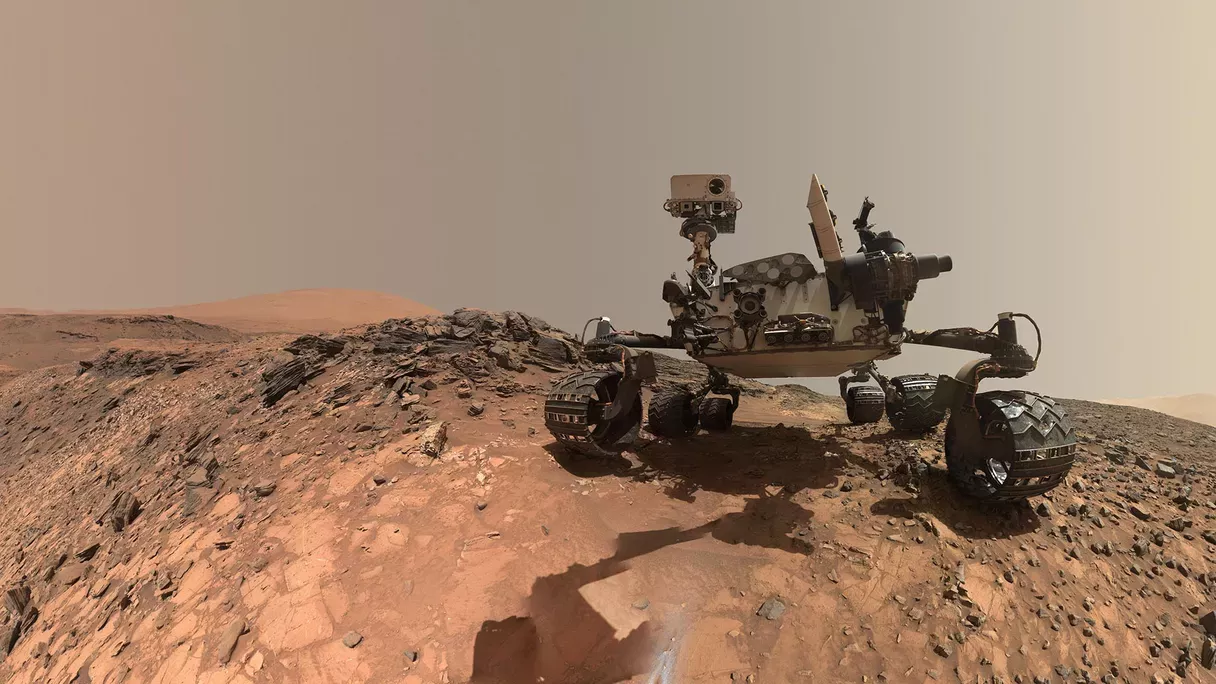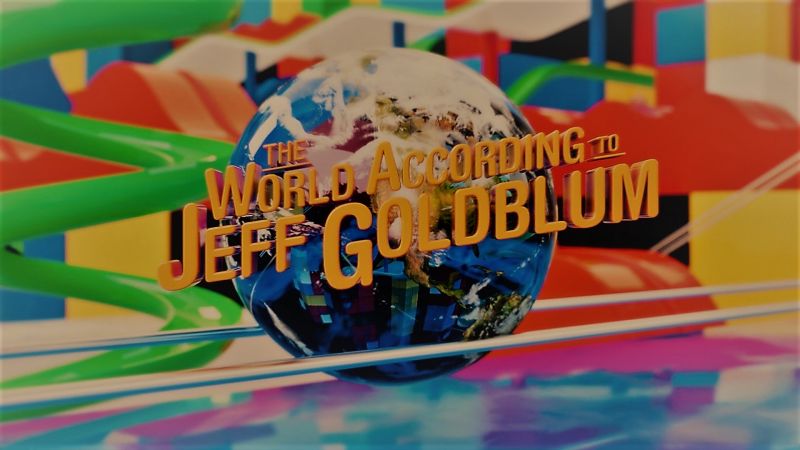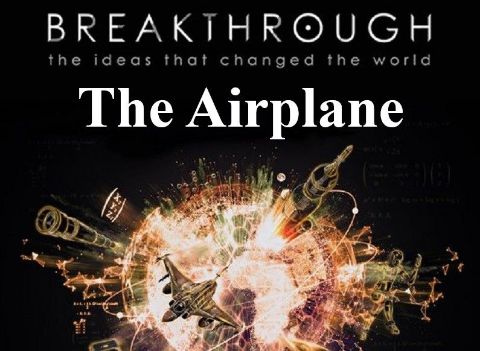My AI Life • 2023 • episode "S1E2" • BBC Royal Institution Christmas Lectures: The Truth about AI
Mike Wooldridge reveals the huge role AI already plays in our daily lives – sometimes without us even realising its role. Mike investigates how games like chess and Go have become a training ground for AI, helping to bring about key advances we are now seeing in the field, and he reveals how simple methods of learning, like rewarding success, have been used to train AI in spectacular ways. We also feature some of the revolutionary innovations that AI has brought about in healthcare, from the use of AI tools in planning cancer treatment, to monitoring Parkinson's. Mike is joined by members of DeepMind's AlphaFold team, who use AI to predict the structures of large numbers of proteins, which will revolutionise the creation of new drugs across the world. We also reveal the huge impact AI has had on our creative lives – as it is able to write songs and create artworks in seconds. With the help of artist Eric Drass (aka shardcore), the audience creates a collaborative artwork and discovers how image generation works. Mike explores the thorny question of who the creator is – the AI itself, the human who set it to work, or the creators of the art that AI has learned from? The Christmas Lectures are the most prestigious event in the Royal Institution calendar, dating from 1825, when Michael Faraday founded the series. They are the world's longest running science television series, and always promise to inspire and amaze each year through explosive demonstrations and interactive experiments with the live theatre audience.
Make a donation
Buy a brother a hot coffee? Or a cold beer?
Hope you're finding these documentaries fascinating and eye-opening. It's just me, working hard behind the scenes to bring you this enriching content.
Running and maintaining a website like this takes time and resources. That's why I'm reaching out to you. If you appreciate what I do and would like to support my efforts, would you consider "buying me a coffee"?
Donation addresses
BTC: bc1q8ldskxh4x9qnddhcrgcun8rtvddeldm2a07r2v
ETH: 0x5CCAAA1afc5c5D814129d99277dDb5A979672116
With your donation through , you can show your appreciation and help me keep this project going. Every contribution, no matter how small, makes a significant impact. It goes directly towards covering server costs.
